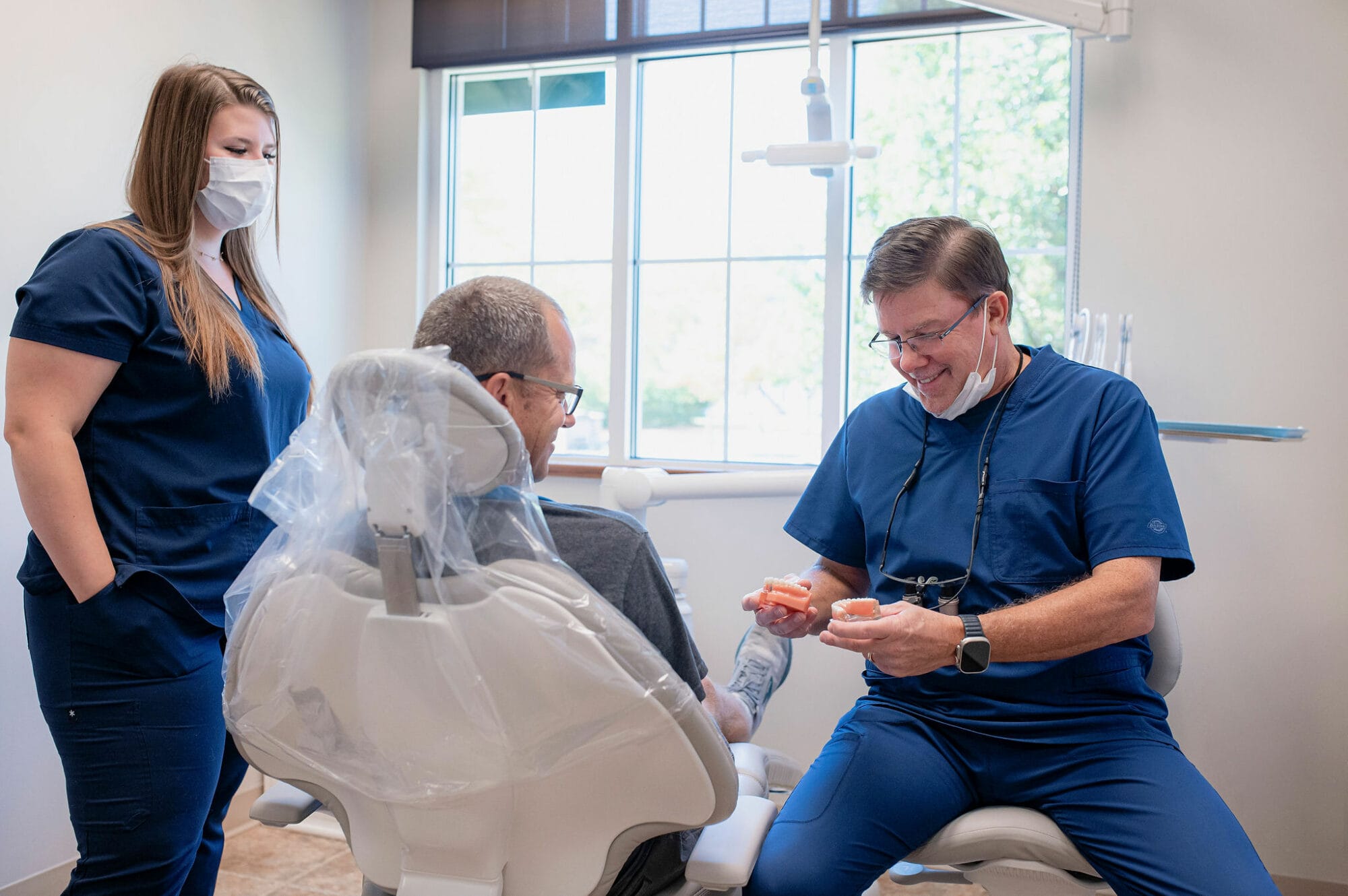Discover expert root canal treatment in Worthington, Ohio, at our dental practice.
Our team, led by the experienced Kevin and Connor Huelsman, specializes in providing top-notch root canal services, combining advanced technology with a compassionate, patient-first approach. Whether you’re dealing with dental pain or seeking preventive care, our practice is equipped to offer the best dental health solutions.
Contact us today and take the first step towards healthier, pain-free teeth.

Root Canals in Worthington, Ohio:
A Patient-Centric Process
Our approach to root canal treatment is meticulous and patient-focused, involving several steps. Here’s what we do:
Initial Consultation and Examination
The process begins with a thorough initial consultation. If this is your first visit, our team conducts a comprehensive examination to assess your dental health. This crucial step helps us understand the extent of your dental issue and forms the basis for the entire treatment process.
Transparent Explanation
Transparent Explanation: During this stage, we take the time to explain the nuances of the root canal process. Our commitment to transparency and education ensures that you are fully informed and comfortable with the procedure ahead.
Personalized Treatment Planning
Following the initial assessment, we develop a personalized treatment plan. Since we recognize that each patient’s dental needs are unique, our treatment plans are meticulously crafted to address your situation.
Patient Education and Engagement
By keeping you informed and involved, we aim to alleviate any concerns and make the treatment journey as comfortable and reassuring as possible.
Throughout this process, our team, led by Dr. Kevin Huelsman, is dedicated to answering your questions and addressing any concerns.
Why Choose Dr. Kevin and Dr. Connor
For Your Root Canal
Selecting the right dentist for your root canal is a critical decision. Dr. Kevin and Dr. Connor Huelsman stand out as an exemplary choice for several key reasons:

Over Two Decades of Dental Expertise
With over twenty years of experience in dentistry, Dr. Kevin brings extensive knowledge and skill to each root canal procedure. His extensive background ensures that every treatment is based on a deep understanding of dental health and the latest advancements in dental care. Patients benefit from his seasoned expertise, receiving top-quality, effective, and grounded care in years of successful practice.
Advanced Technology for Painless Treatment
Dr. Kevin and Dr. Connor Huelsman’s practice is at the forefront of dental technology, utilizing advanced equipment and techniques to ensure painless and efficient root canal treatments. This modern approach enhances the procedure’s effectiveness and significantly reduces discomfort and recovery time, making the experience more pleasant for patients.
Easy Scheduling and Supportive Staff
Understanding our patients’ busy lives, we offer easy scheduling options to accommodate various lifestyles. Our supportive staff are dedicated to making the process seamless, from booking your appointment to answering any questions you may have.
Comprehensive Services for
All Your Dental Needs
At our practice in Worthington, Ohio, we pride ourselves on offering a wide array of dental services, ensuring comprehensive care beyond root canal treatments.

Beyond Root Canals: Full Dental Care Solutions
Root canal therapy is often part of a more extensive dental health plan. To this end, we offer restorative treatments such as dental implants, crowns, and bridges, often necessary following a root canal to fully restore the tooth’s function and appearance.
Additionally, our practice provides endodontic retreatment and apicoectomy services for cases where previous root canal treatments need further care.
Ensuring Long-Term Dental Health
A crucial part of our service is focusing on the long-term dental health of our patients. After a root canal, we emphasize the importance of ongoing care and maintenance. This includes regular check-ups to monitor the treated area and surrounding teeth, ensuring that potential issues are addressed promptly.
We also offer preventive care advice, helping patients understand how to best care for their teeth post-treatment to avoid future complications.

Contact Us Today for Your Root Canal Consultation
At Dr. Kevin and Dr. Connor Huelsman’s practice, we specialize in root canals in Worthington, Ohio, along with a wide range of dental services designed to meet all your oral health needs. Schedule your consultation and take the first step towards a healthier, happier smile.
WE LOVE OUR PATIENTS
We appreciate the opportunity to provide you with the best possible service and treat you like family and we’re proud of the reviews we receive from our patients!
CONTACT US
CONTACT US
